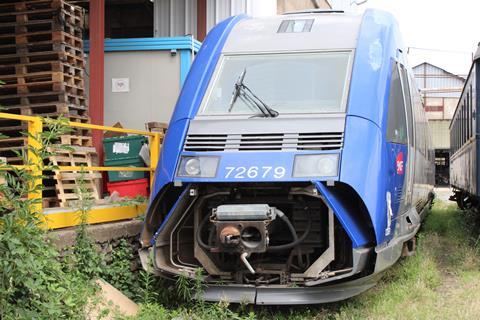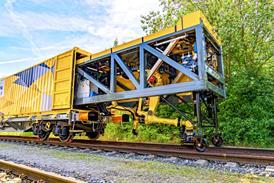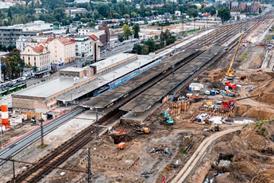
FRANCE: Open access co-operative Railcoop is expected to be formally liquidated on April 29, the company President Nicolas Debaisieux has confirmed.
The collapse of the co-operative comes after it was placed into judicial administration on October 16 for a period of up to six months. With this period now expiring, a hearing was held at the administrative court in Cahors on April 15 to begin arranging the formalities for creditors, two weeks ahead of the formal liquidation.
While this would bring to an end the idea of using a co-operative model to launch open access trains such as Railcoop’s planned Lyon – Bordeaux service, Debaisieux believes that the project could still be salvaged through outside investment. Railcoop had been planning to restructure itself into an operating business and an asset management ‘opco’.
The co-operative has been negotiating with investment fund Serena Partners and a rolling stock leasing company with a view to progressing the proposed restructuring. According to Debaisieux, these investors had secured 60% of the €11m required to establish the planned Lyon – Limoges - Bordeaux open access service, but this still left a €3·5m gap in the business plan.
Railcoop has explored the sale of its two X72500 DMUs to Romanian operator Marub SA to raise the funds needed to bridge the gap in its business plan and pay its legal fees. However, the business has not yet paid for the storage of these trains at Clermont Ferrand-based maintenance contractor ACC M since 2022, and as a result, ACC M is refusing to release them. A court order adjudicating on this dispute instructed Railcoop to pay €160 000 to ACC M.
The administrative court in Cahors is due to make a final decision on April 29 about Railcoop’s liabilities and payments to outstanding creditors. The most likely outcome will be the formal liquidation of the company, bringing to an end the remaining hopes of a restructuring.
Reflecting on his experience so far, Debaisieux felt that Railcoop had at least demonstrated a clear demand for rail services on secondary lines in France, and laid bare many of the hurdles facing new entrants in the market. Its short-lived freight services also proved the organisation’s ability to operate trains in line with regulatory requirements. Railcoop’s membership had reached a peak of 14 000 at time of its collapse.

















